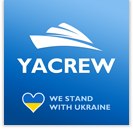Accredited Engine Course
€1,240 EUR
- Course Type:
- Approved Engine Course
- Training School:
- MaritimeMT
- Location:
- Ħal Far Industrial Estate, Birżebbuġa, Malta
- Duration:
- 10 days
- Language:
- English
Based on the guidelines, suggestions and requirements of Transport Malta Model course 1.05
On successful completion of the training and assessment trainees should be able to:
- Have an understanding of the Yachting Industry;
- Have an understanding of the applicable requirements of the Malta Commercial Yacht Code;
- Have a basic knowledge of the mechanical and electrical systems onboard;
- Have a basic knowledge of the safety systems onboard and know how to operate them,
- Carry out safe and effective engineering operations onboard;
- Gain proficiency in trouble shooting, fault finding and the relevant resolution practices/techniques;
- Carry out regular/periodical/preventive maintenance of onboard equipment/machinery;
- Provide the necessary assistance during Surveys;
- Respond to emergencies onboard;
- Have a thorough knowledge of the applicable International Codes and Conventions.
1. Introduction to the Yachting Industry and to the Malta Commercial Yacht Code
a. Types of Yachts
b. Commercial and Pleasure (Private) Yachts
c. Malta Commercial Yacht Code
2. Safety in the Engine room and in the Garage spaces
a. What to do in case of engine room or garage space fire
b. Engine room and Garage spaces Escapes and Escape Route
c. Fixed Fire Extinguishing Systems
d. Portable Fire Extinguishers
e. Fire Alarm Systems
f. Engine room firefighting equipment
g. Garage firefighting equipment
h. Basic fire-fighting techniques
i. Extinguishing gas Asphyxiation Hazards
j. Basics in carrying out a Risk Assessment
k. Personal Protective Equipment (PPE)
l. Emergency Escape Breathing Devices (EEBDs)
m. Main and Emergency Fire pumps
n. Remote Fuel valves shut-off system
o. Potential Fire Hazards
p. Entry into enclosed spaces/tanks
q. Means of Communication
r. Garage/Transom door opening and locking systems
s. Garage/Transom door sealing system
t. What to do in case of an accident onboard
3. Unmanned (UMS) and Manned Machinery Spaces
a. Main differences between the two
b. Safety and Alarm systems and equipment installed in an UMS
c. Alarm repeaters
MMRTC QMSM
Issue Number: 02
4. Yacht Main and Auxiliary Engines and Tender/Toys Engines:
a. Compression Ignition Engines
b. Spark Ignition Engines
c. Two Stroke and Four Stroke cycles
d. Diesel Engine Components, Terminology and Functions
e. Pistons/Cam-Shafts’ configurations
f. Inboard and Outboard Engines
g. Engine Performance Data and Parameters
h. Exhaust System
5. Fuel System
a. Types of Fuel Supply systems and their basic differences
b. Fuel System Safety
c. Fuel Tanks, Gauging, Filling, Venting and Isolating
d. Remote Fuel Valve Shut-Off system
e. Fuel Pumps
f. Fuel Injectors
g. Bleeding of a Fuel System
h. Turbo Chargers
i. Bunkering Procedures, Safety and Pollution Prevention
j. Air/Fuel ratios
6. Lubricating System
a. Lube Oil testing/changing intervals
b. Lubricating Oil Pumps
c. Lubricating Oil Filters including centrifugal Lube Oil Filters
d. Lubricating Oil Circuit
e. Bearing Material and the action of Friction
f. The importance of Lubricating Oil in minimising friction and in dissipating heat
7. Engine Cooling System
a. Cooling water Open and Closed-circuit cooling
b. The importance of maintaining the correct cooling water temperature
c. Heat Exchanger
d. Sea Valves
e. Sea-water strainers/filters
f. Cooling water pumps
8. Power Transmission
a. Stern tube bearings and seals
b. Fixed and CPP propulsion systems
c. Gear boxes
d. Control Systems
9. Steering Gear and Hydraulics
a. Types of Steering Gear Systems including water jet steering systems
b. Emergency Steering Gear operation including both traditional steering systems and
unconventional steering systems
c. Hydraulic circuits and function
d. Hydraulic rams
e. Hydraulic power packs
10. Bilge Systems
a. Typical bilge piping/tanks arrangement
b. Back flooding
c. Main and Emergency Bilge pumps
11. Refrigeration Systems
a. Refrigeration phases and main components and circuit
b. HVAC systems
12. Petrol
a. Petrol Hazards;
b. Storage of petrol onboard in containers
c. Petrol in the fuel tanks of tenders/toys
13. Bottled LPG Gas
a. Typical bottled LPG installations and maintenance
b. LPG safety systems
14. Electrical Systems
a. Electrical Supply systems on-board, including generators, batteries and shore supply
b. Avoidance of Electrical Shock
c. Emergency Electrical Supply systems and arrangements
d. Insulation Testing and its importance
e. Possible Hazards of Batteries during charging
f. Battery Charging safety systems
15. Introduction to MARPOL Regulations
a. Annex I - Regulations for the Prevention of Pollution by Oil
b. Annex IV- Prevention of Pollution by Sewage
c. Annex V - Prevention of Pollution by Garbage
d. Annex VI- Prevention of Air Pollution
e. Documentation/Certificates to be maintained onboard in relation to MARPOL requirements
16. Engine Room Survey and Documentation
a. Items/Equipment/Machinery/Documentation usually inspected by Surveyors during periodical
Class and Statutory Surveys
b. Engine Room Logbook
c. Oil Record Book
d. Fuel and Lubricating Oil consumption records
17. Lifting Appliances
a. Safe Lifting Techniques and Equipment
b. Safe Working Load (SWL)
18. Basic Engineering Maintenance
a. The importance of following the manufacturer’s maintenance schedule
b. Routine Maintenance Procedures
c. Preventive Maintenance
d. Approved Fluids and Lubricants manuals
e. Servicing Instructions
f. Condition Monitoring
19. Basic Handover Procedures
a. Documents and information required during a handover
20. Practical/Demonstration Sessions
a. Overview of the parts/equipment/machinery which were mentioned during the theoretical
part of the course
b. Checks and procedures before starting an engine
c. Common causes of engine starting failure
d. Reading and Monitoring of Engine Gauges
e. Engine Alarms
f. Exhaust smoke colour indications
g. Engine Overheating causes and symptoms
Entry Requirements
The trainee shall be not less than 18 years of age.
Requirements for the issuance of an AEC (Yachts) Certificate
The trainee shall:
• Have completed and passed the assessment for the Accredited Engine Course (Yachts).
• Be in possession of a Basic Training Certificate in accordance with STCW Reg. VI/1
• Be in possession of an IMO/ILO Medical Fitness Certificate.

MaritimeMT
MaritimeMT, HHF041A
Ħal Far Industrial Estate, Birżebbuġa
BBG 3000
Malta
